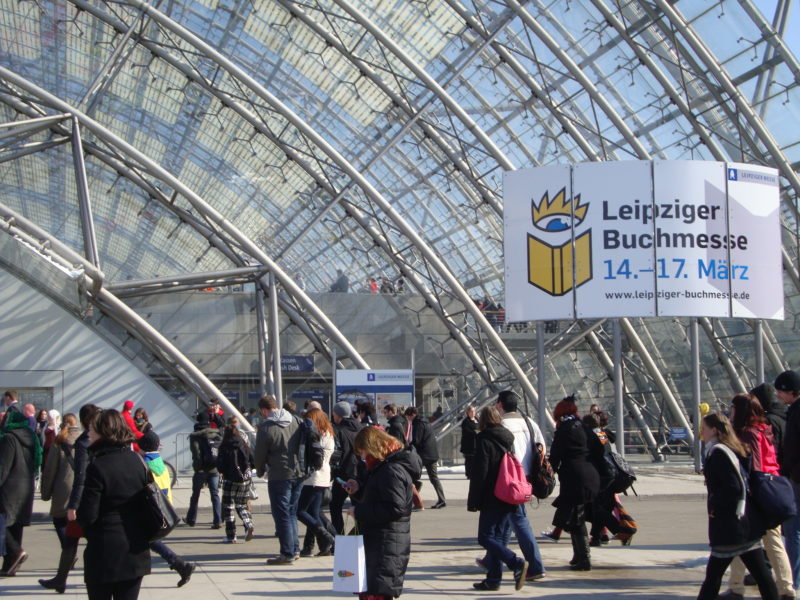Lithuanian literary adventure routes for the spring: China, Germany, Italy, United Kingdom and Ukraine

The Lithuanian Culture Institute is starting its traditional spring international literature event marathon. It began in a new place this year on March 13th when a project presenting Lithuanian literature in Northern China began in Beijing. The project will occur in several stages and end in August. On March 17th, a Lithuanian literature stand also opened at the international book fair in Leipzig, to be followed later by Bologne, London and Kiev.
Lithuanian literature’s first steps in China
The project, which is being carried out by the Institute together with its cultural attache in China, Agnė Biliūnaitė, will introduce the prose, poetry, dramaturgical texts, and children’s books and illustrations of Lithuanian authors to China.
At the Bookworm international independent literature festival, which will be held in three Chinese cities (Beijing, Chengdu and Suzhou) between March 11th and 27th, Lithuania will be represented by prose writer Undinė Radzevičiūtė and poet and playwright Mindaugas Nastarevičius. The festival, now in its tenth year, will present 200 authors from China and other countries and will involve 300 events.
Undinė Radzevičiūtė will participate in discussions in Chengdu and Beijing organized by Literature Across Frontiers and Bookworm to present Europe’s best literature. Discussion participants from Catalonia, Wales and other small but culturally rich regions will talk about their experiences with writing in their native languages for a global audience. Mindaugas Nastaravičius will also read his poetry in Beijing and participate in four discussions involving playwrights from different continents. “Democracy,” a play written by Mindaugas Nastaravičius, will be read on-stage during the “Evening Theater” being held in Chengdu. The play (presented under the name “A house whose electricity has gone out”) was translated into Chinese by Lina Bartusevičiūtė just for this festival.
Rūta Statulevičiūtė-Kaučikienė, who is heading the project presenting Lithuanian literature in Northern China, says it would be naive to believe that Chinese publishers and readers would immediately fall in love with this little-known country’s literature upon first encountering Lithuanian works. “From our experience, we know that for this to happen, we need to put in a lot of effort. This presentation by two talented writers at the festival of a solid international literary company like Bookworm is a small but bold step towards spreading Lithuanian literature to a country with a distinctive culture,” said Statulevičiūtė-Kaučikienė.
From August 24-29, the Liaoning Chinese publishing house will present books by Kęstutis Kasparavičius and Vytautas Landsbergis that have been published in Chinese at a children’s book fair to be held in the Chinese capital of Beijing and at meetings and creative workshops for children to be held in Beijing and Shenyang.
The eve of a special year
At the international book fair in Leipzig on March 17th-20th, Lithuanian cultural attache in Germany Gabrielė Žaidytė and the Lithuanian Ministry of Culture will present a national stand that will introduce the fair’s hundreds of thousands of visitors to Lithuania’s literature and culture. The stand will feature books by Lithuanian authors translated into German, books evaluated in book art competitions, popular children’s books, collections of literary texts, and various informational publications.
In 2017, Lithuania will function as the main guest of this fair, so when opening the stand on March 17th, Vice-Minister of Culture Dr. Romas Jarockis will speak about what interesting things the fair’s visitors will discover at the Lithuanian stand next year.
As is the case every year, German translations of Lithuanian literature enjoy a great deal of attention. This year, the Aufbau Verlag publishing house will present “Miestelio romansas,” a novel by Grigorijus Kanovičius, and the Mitteldeutscher Verlag publishing house will present “Mano vardas – Marytė,” a novel by Alvydas Šlepikas – with the participation of the author. Poets Indrė Valantinaitė and Benediktas Januševičius, together with Latvian colleagues Inga Gaile and Arvis Ostups, will perform readings of Baltic poetry. The Dom Publishers publishing house will present architectural guides of Kaunas and Leipzig.
Relevant polemics will also make their way to Leipzig: philosopher Nerija Putinaitė, literary scholar and poet Rimantas Kmita, and art researcher Jurgita Grajauskaitė will discuss Soviet reflections in literature. Kmita, Antanas A. Jonynas and translator Claudia Sinnig will participate in discussions about Germany and Lithuania’s literary ties. Artist Ieva Babilaitė will organize creative workshops for children both at the fair and at the International School of Leipzig.
Traditionally, the books evaluated during the Vilnius 2014 Lithuanian national book art competition will be displayed at the Leipzig book fair’s international book art gallery.
The Leipzig book fair is the largest book fair in Eastern Germany and it’s open to visitors, just like the Vilnius book fair. The annual fair attracts almost 240,000 visitors from all over Germany, as well as Austria and Switzerland, to the fair and to the “Leipzig Reads” festival. It had been the largest book fair in Germany in 1632, when more books were presented in Leipzig than at the book fair in Frankfurt. The Leipzig fair maintained this position until 1945, when the Frankfurt book fair regained the position it had lost.
Between April 4th and 7th, the Lithuanian literature and book illustration exposition will move from Leipzig to the Bologne children’s book fair. On April 14th-16th, the literary “representatives” will work at the London book fair as well. This book fair, like the one in Leipzig, is very important to Lithuania: the Baltic states, including Latvia and Estonia, will be named the “Market Focus” at the London book fair in 2018. On April 20th-24th, the Lithuanian Culture Institute will invite visitors to the Knizhnyj Arsenal international festival in Kiev to familiarize themselves with books from Lithuania.